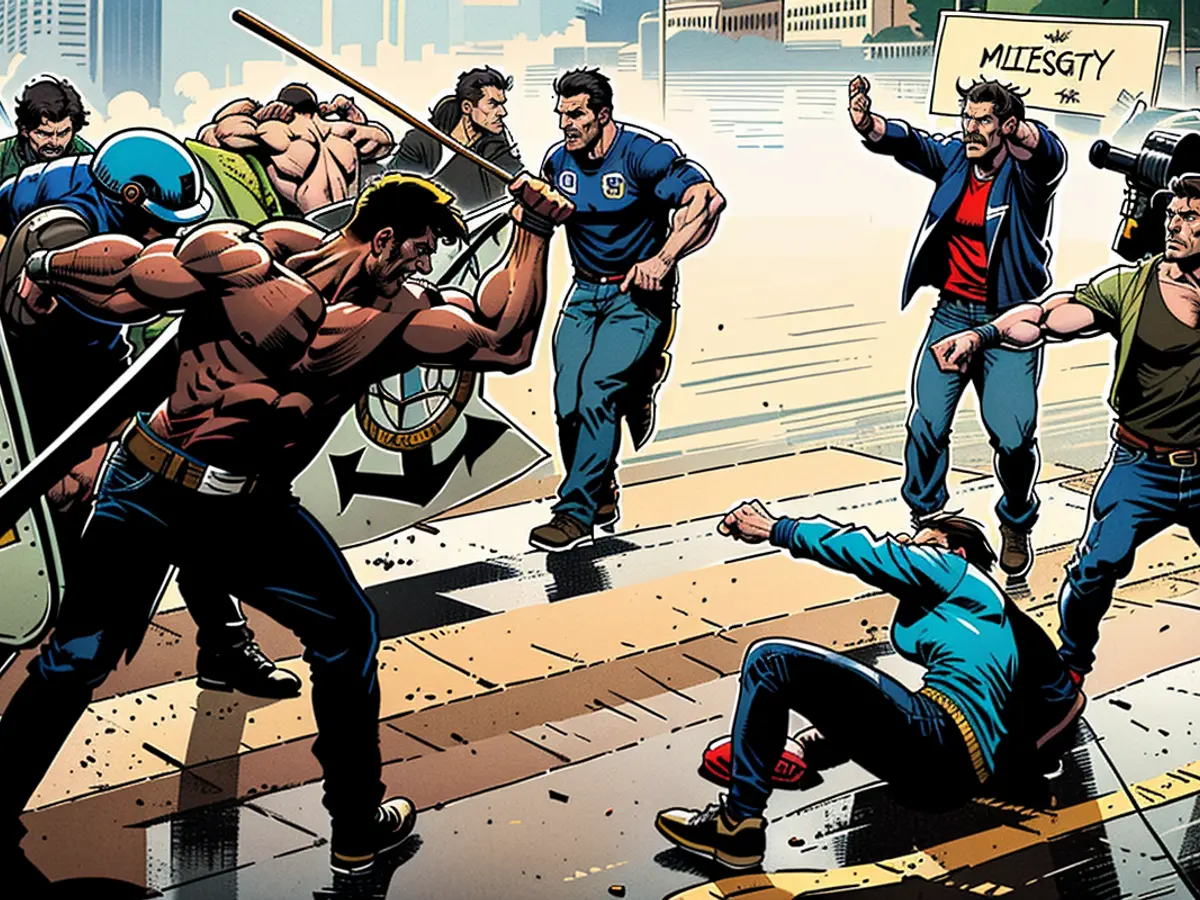Argentina's Senate endorses divisive austerity program.
When Argentinian President Milei took power in November, he announced a "shock therapy" for the nation. Recently, the Senate passed an austere package of reforms making it the initial step of this initiative. During the debate, demonstrators and police clashed fiercely outside Congress, with injuries reported.
In the heart of the capital Buenos Aires, Argentina's Senate approved a controversial overhaul package of Milei's ultraliberal administration amidst heated protests. The vote, decided by a slim majority of 37 to 36, was cast by Vice President Victoria Villarruel to prevent a stalemate. Vice President Villarruel's "yes" vote as the Senate leader allowed the bill to pass. Jubilant about the result, Milei's office stated, "We celebrate the historic passage of the law," adding, "This is a victory for the Argentine people and the first step towards restoring our greatness." However, the bill needs to be revised and is back in the Chamber of Deputies. As a result, it might take longer to become law, explained newspaper "La Nacion."
Heated Protests
Throughout the Senate debate process, tensions spilled onto the streets where protesters and policemen had violent confrontations outside the Congress building. Masked protesters hurled rocks and Molotov cocktails at the authorities. The police responded with batons and tear gas. In an escalating situation, several automobiles caught fire, and officers arrested about 20 suspects, according to TV broadcaster TN.
On the radar is Milei's legislative endeavor, which includes privatizing some state-owned firms, slashing taxes for large investors, and reforming labor and taxes. His administration had to scale back the list of proposals to win parliamentary support. Rebuking the reform legislation as neoliberal and antisocial, social movements and the left-leaning opposition are concerned about its far-reaching consequences.
In the midst of a dire economic situation, Argentina is experiencing inflation of almost 290%. One of the highest in the world, the crisis plagues the second-largest South American economy with a bulky bureaucracy, low industrial productivity, and a large shadow economy that hampers the government's potential tax revenues. Pushed by the ultraliberal President Milei, the country intends to recover from its perilous state with a severe austerity program. The President had declared a "shock therapy" for Argentina upon taking office. The government has already shed thousands of jobs from the public sector, cut subsidies, and scaled back social programs. According to the Catholic University of Argentina, almost 56% of Argentina's population lives in poverty, while 18% experience extreme poverty.
Read also:
In the face of heated protests, Argentinian President Milei's austerity policy faced stern opposition, with clashes between demonstrators and police outside Congress resulting in injuries. Despite the violence, Milei's ultraliberal administration celebrated the Senate's approval of the controversial reform package, marking the first step of his shock therapy for the nation.








